Leaders of the BRICS emerging economies – Brazil, Russia, India, China and South Africa – have stressed the bloc’s economic strength and called for deeper integration.
The comments came on the first day of the group’s 15th summit in Johannesburg on August 22. The gathering of heads of state and government will run until August 24.
“The changes that have taken place in the BRICS economies over the past decade have done much to reshape the global economy,” South African host President Cyril Ramaphosa said at the Summit’s Economic Forum.
“Together, the BRICS countries make up a quarter of the global economy, account for a fifth of global trade and are home to more than 40 per cent of the world’s population,” Ramaphosa said at the Sandton Convention Centre, Johannesburg’s financial hub, where the summit is taking place.
The South African leader noted that the bloc “exists not only to strengthen government-to-government relations but also to forge stronger ties between the people of our five countries.”
Expanding for peace and development
At the conference, the topic of expanding the BRICS bloc was raised and enthusiastically supported by Chinese President Xi Jinping. Beijing has put a lot of effort into the BRICS expansion plan in an attempt to assert its political and economic influence on the global stage.
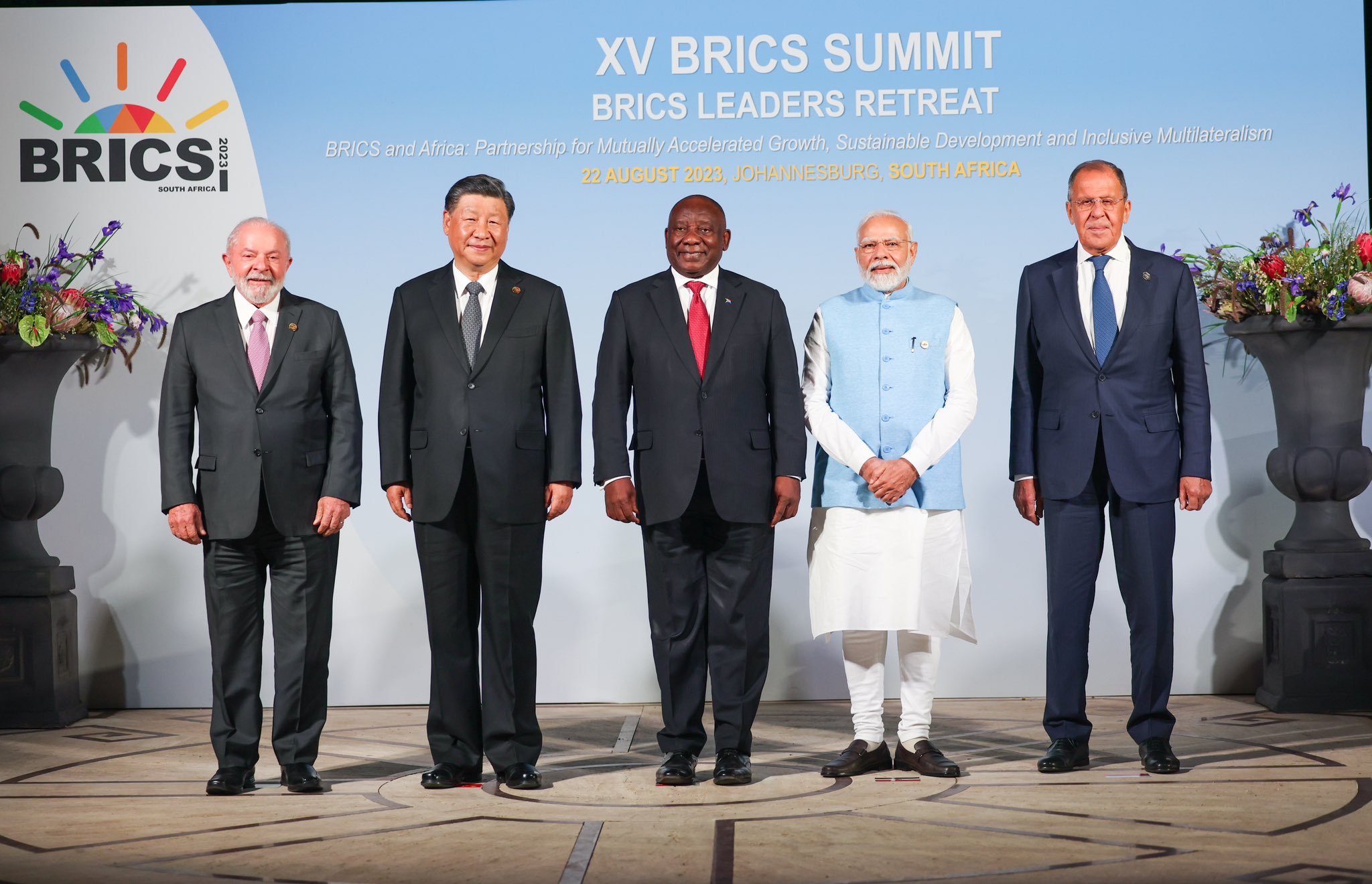
From left: Brazilian President Luiz Inacio Lula da Silva, Chinese President Xi Jinping, South African President Cyril Ramaphosa, Indian Prime Minister Narendra Modi and Russian Foreign Minister Sergey Lavrov. Photo: Twitter MEAIndia
The summit is not about asking countries to take sides, but about calling for greater cooperation for peace and development, Xi said in a speech read on his behalf by Chinese Commerce Minister Wang Wentao.
“Hegemony is not in China’s DNA,” Xi said. The Chinese leader arrived in South Africa on August 21, but did not attend the BRICS Economic Forum as part of the summit. No official explanation has been given.
“We will further consolidate the BRICS strategic partnership. We will expand the BRICS+ model, actively promote membership expansion, and enhance solidarity and cooperation with other emerging markets and developing countries,” the Chinese leader stressed.
“No matter what resistance there may be, BRICS, as a positive and stable force of goodwill, will continue to develop,” he said. “We will build a stronger BRICS strategic partnership, actively promote membership expansion, and help make the international order more just and equitable.”
China is the most powerful economy in the BRICS, and Xi Jinping's state visit to South Africa is his second international trip this year. On his previous trip, the Chinese leader traveled to Moscow for talks with Russian President Vladimir Putin.
“Irreversible” trend
In addition to the expansion issue, promoting the use of member countries' local currencies in trade and financial transactions to reduce dependence on the US dollar is also on the Summit's agenda.
In his online speech, Russian President Putin said that abandoning the US dollar in transactions between Brazil, Russia, India, China and South Africa is an “irreversible” trend.
“The process of objective, irreversible de-dollarization of our economic relations is gaining momentum,” Putin said.
“As a result, the share of the dollar in BRICS trade has decreased. Last year, it reached 28.7%,” the Russian president said, emphasizing the process of “de-dollarization” of the bloc’s economies, which he wants to promote through trade in the member countries’ national currencies.
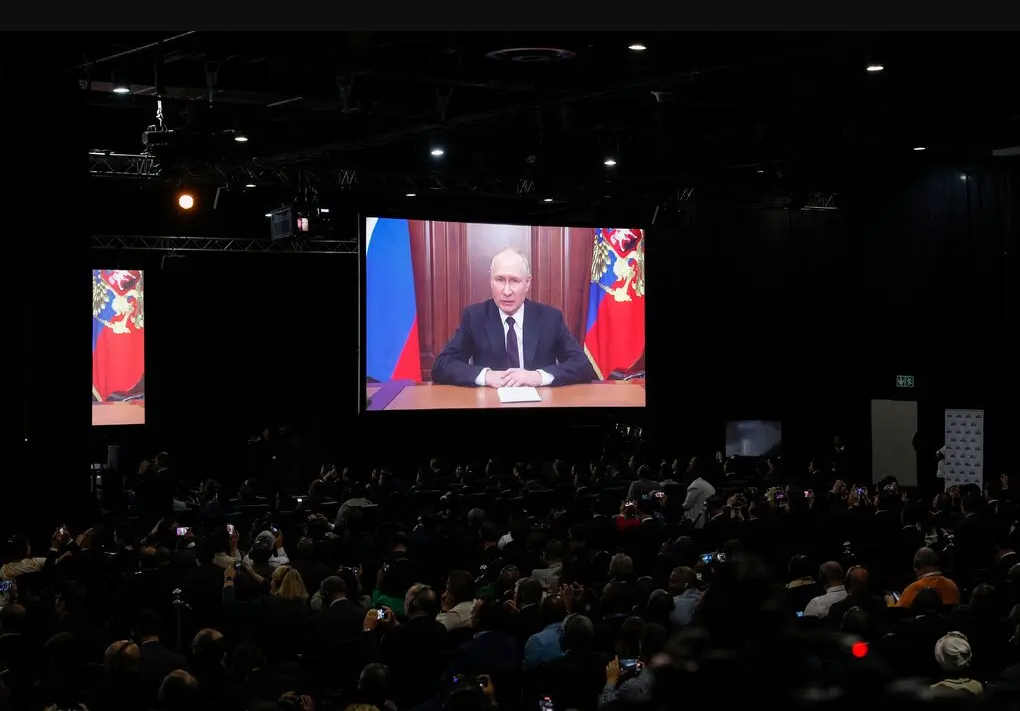
Russian President Vladimir Putin delivers a virtual speech to the BRICS Summit in South Africa, August 22, 2023. Photo: Getty Images
The Russian leader also said that the five BRICS countries are surpassing the G7 – the group of seven leading economies in the world – “in terms of purchasing power parity”, and that BRICS is on track to meet the aspirations of most of the world's people.
“We cooperate based on the principles of equality, partnership and respect for each other's interests, and this is the essence of the bloc's future-oriented strategic roadmap, a roadmap that meets the aspirations of the global majority,” Putin said.
Russian President Putin did not attend the Johannesburg Summit in person to avoid an awkward situation for host country South Africa as an arrest warrant for him by the International Criminal Court (ICC) remains pending.
The BRICS summit in Johannesburg highlighted the gap in Western efforts to isolate Russia over the war in Ukraine.
Among BRICS members, South Africa, China and India have not condemned Russia's military campaign in Ukraine, while Brazil has refused to join Western nations in sending weapons to Ukraine or imposing sanctions on Moscow.
Negotiation on the basis of equality
Indian Prime Minister Narendra Modi and Brazilian President Luiz Inacio Lula da Silva were also present at the talks and invited about 50 other leaders.
Representing 40% of the world's population, the BRICS nations share a desire for a global order that they see as better reflecting their growing interests and influence.
“We do not want to be a rival to the G7, the G20 or the United States,” Lula da Silva said in a social media broadcast from Johannesburg on August 22. “We want to sit at the negotiating table on an equal footing with the European Union (EU), the United States or any other country.”
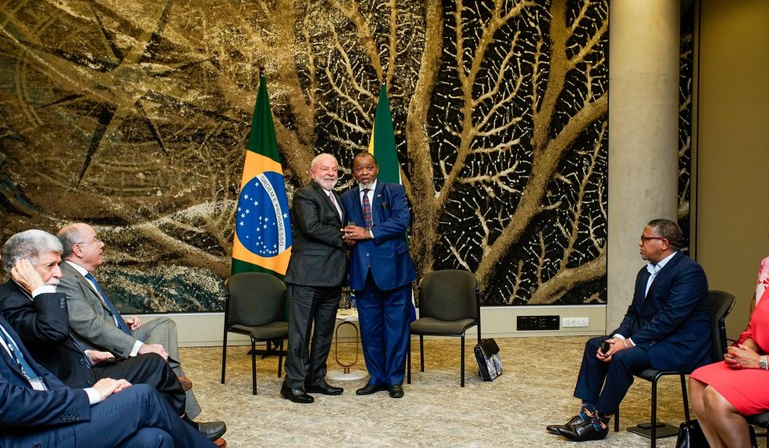
Brazilian President Lula Da Silva meets with leaders of the African National Congress (ANC) on the sidelines of the BRICS Summit in South Africa, August 22, 2023. Photo: IOL
The theme of the 15th summit is “BRICS and Africa”, which comes as the continent emerges as a new diplomatic battleground with the US, Russia and China vying for influence.
The bloc started with four countries in 2009 but expanded the following year with the addition of South Africa.
About 40 countries from across the “Global South” – a broad term referring to countries outside the West – have expressed interest in joining BRICS, according to the South African government, of which 23 have formally expressed interest, including Argentina, Iran, Saudi Arabia, Bolivia, Cuba, Honduras, Venezuela, Algeria and Indonesia.
“This shows that the BRICS family is growing in importance, stature and influence in the world,” said South African President Ramaphosa .
Minh Duc (According to TRT World, La Prensa Latina)
Source



![[Photo] General Secretary To Lam receives Japanese Ambassador to Vietnam Ito Naoki](https://vstatic.vietnam.vn/vietnam/resource/IMAGE/2025/4/3/3a5d233bc09d4928ac9bfed97674be98)

![[Photo] Moment of love: Myanmar people are moved to thank Vietnamese soldiers](https://vstatic.vietnam.vn/vietnam/resource/IMAGE/2025/4/3/9b2e07196eb14aa5aacb1bc9e067ae6f)
![[Photo] Special relics at the Vietnam Military History Museum associated with the heroic April 30th](https://vstatic.vietnam.vn/vietnam/resource/IMAGE/2025/4/3/a49d65b17b804e398de42bc2caba8368)

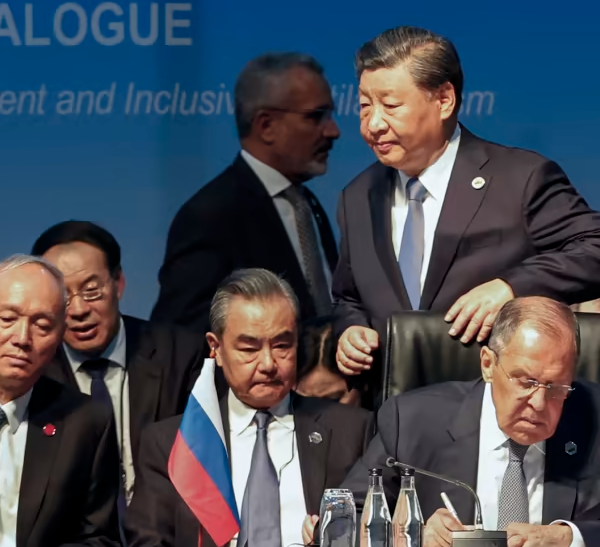
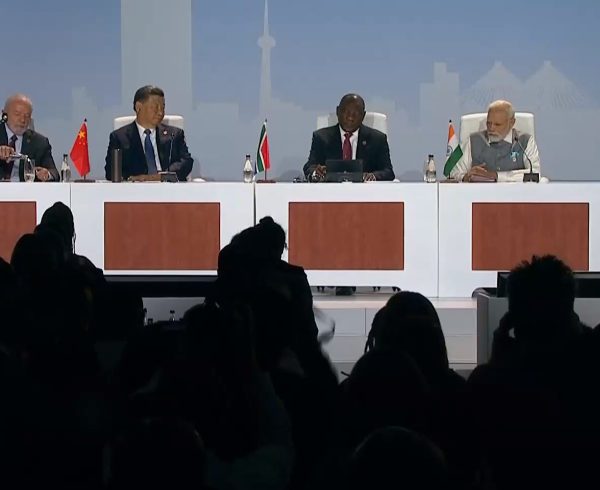
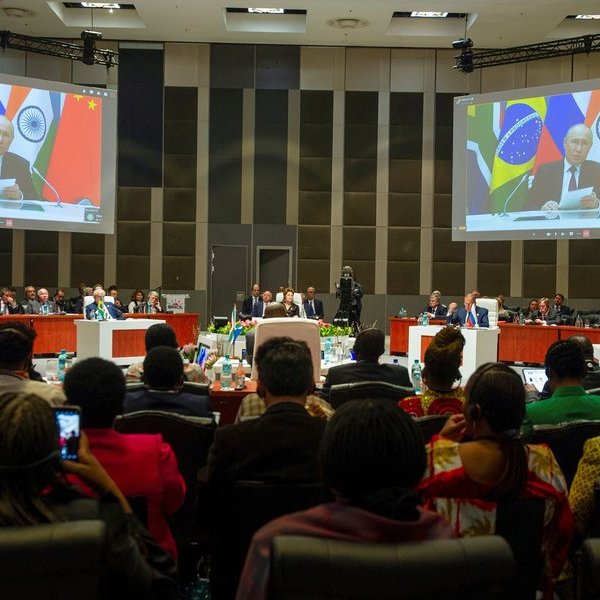
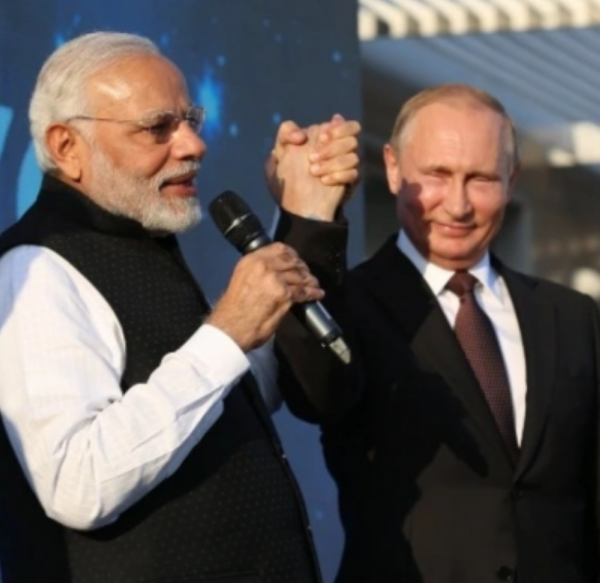
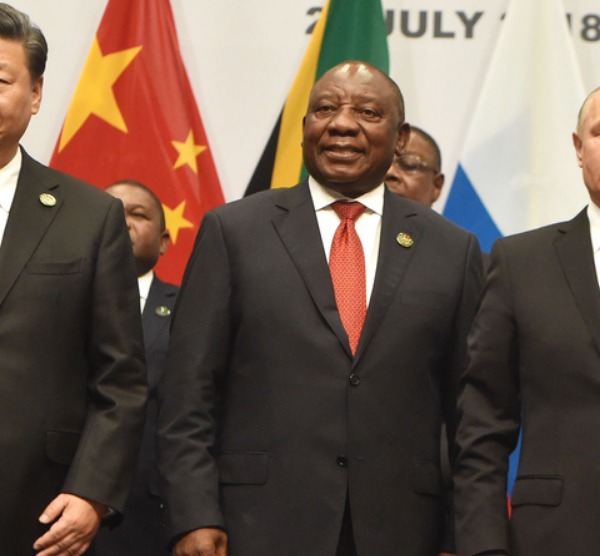
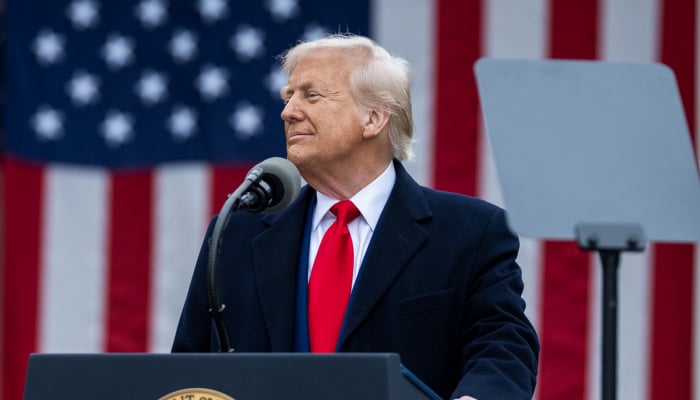
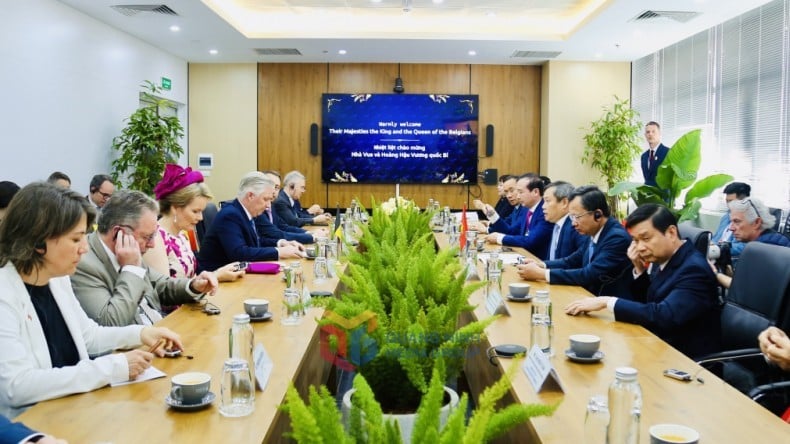


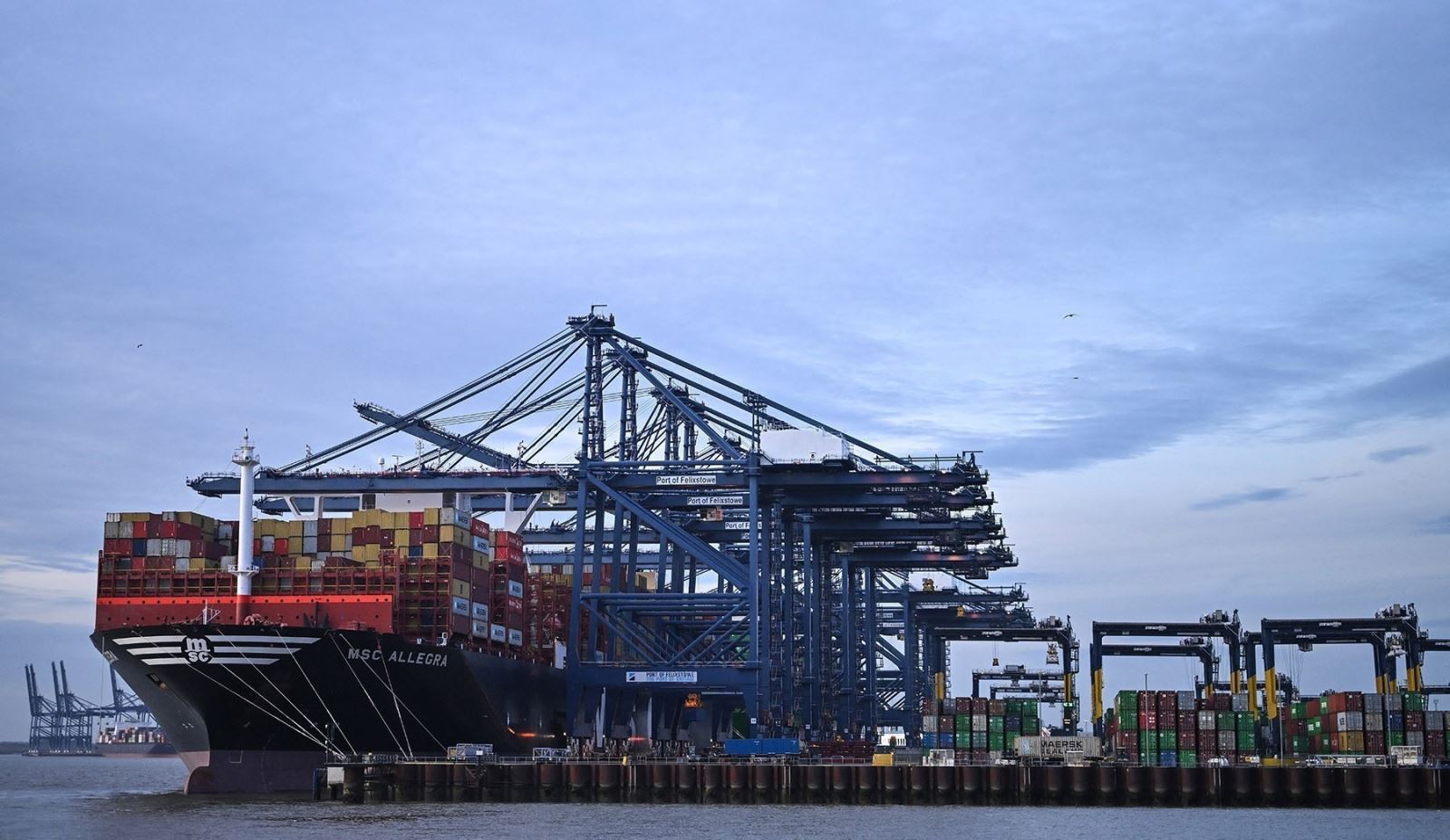










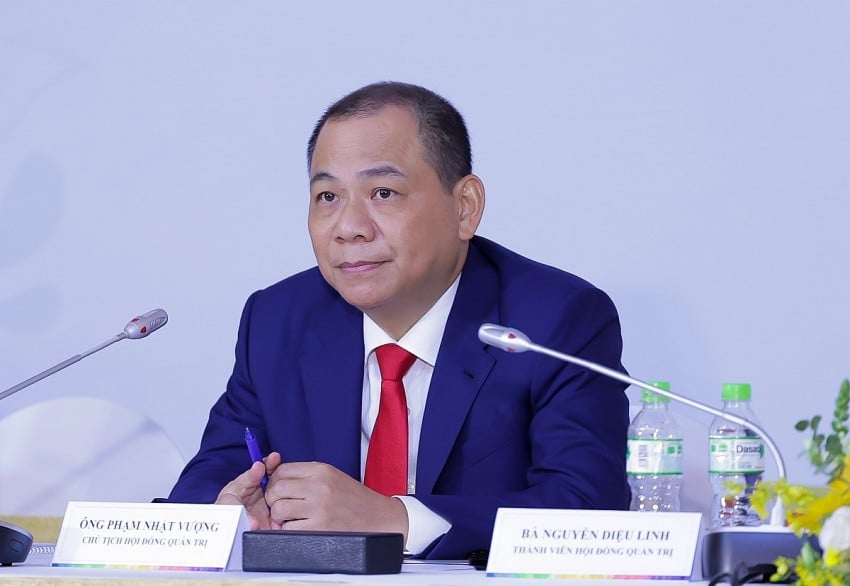



















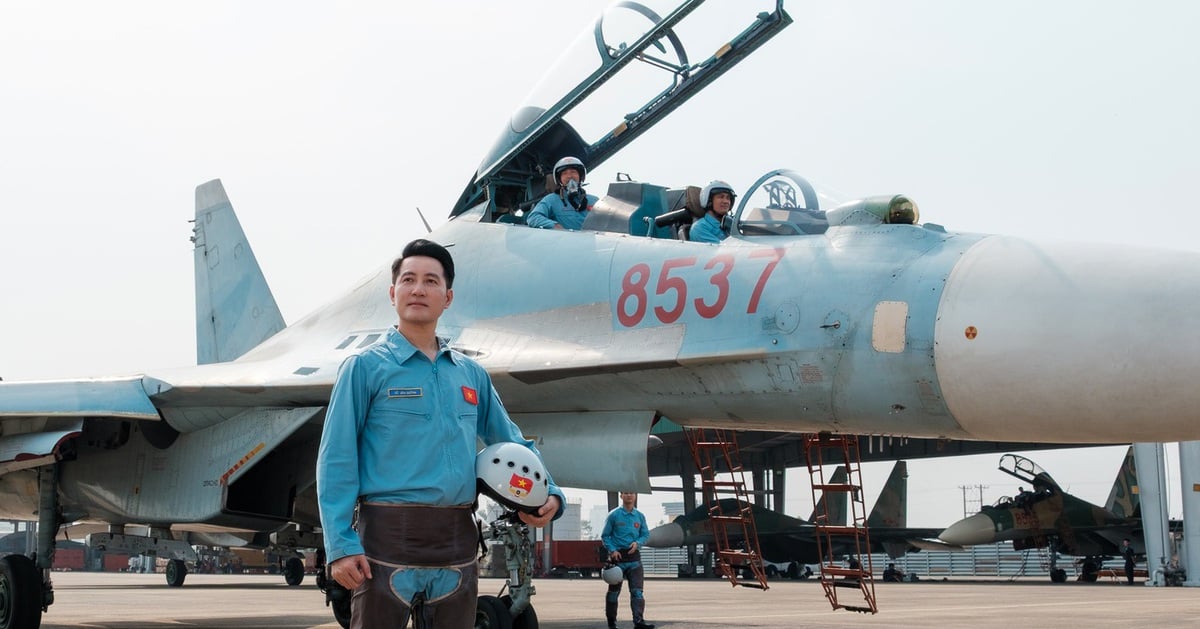









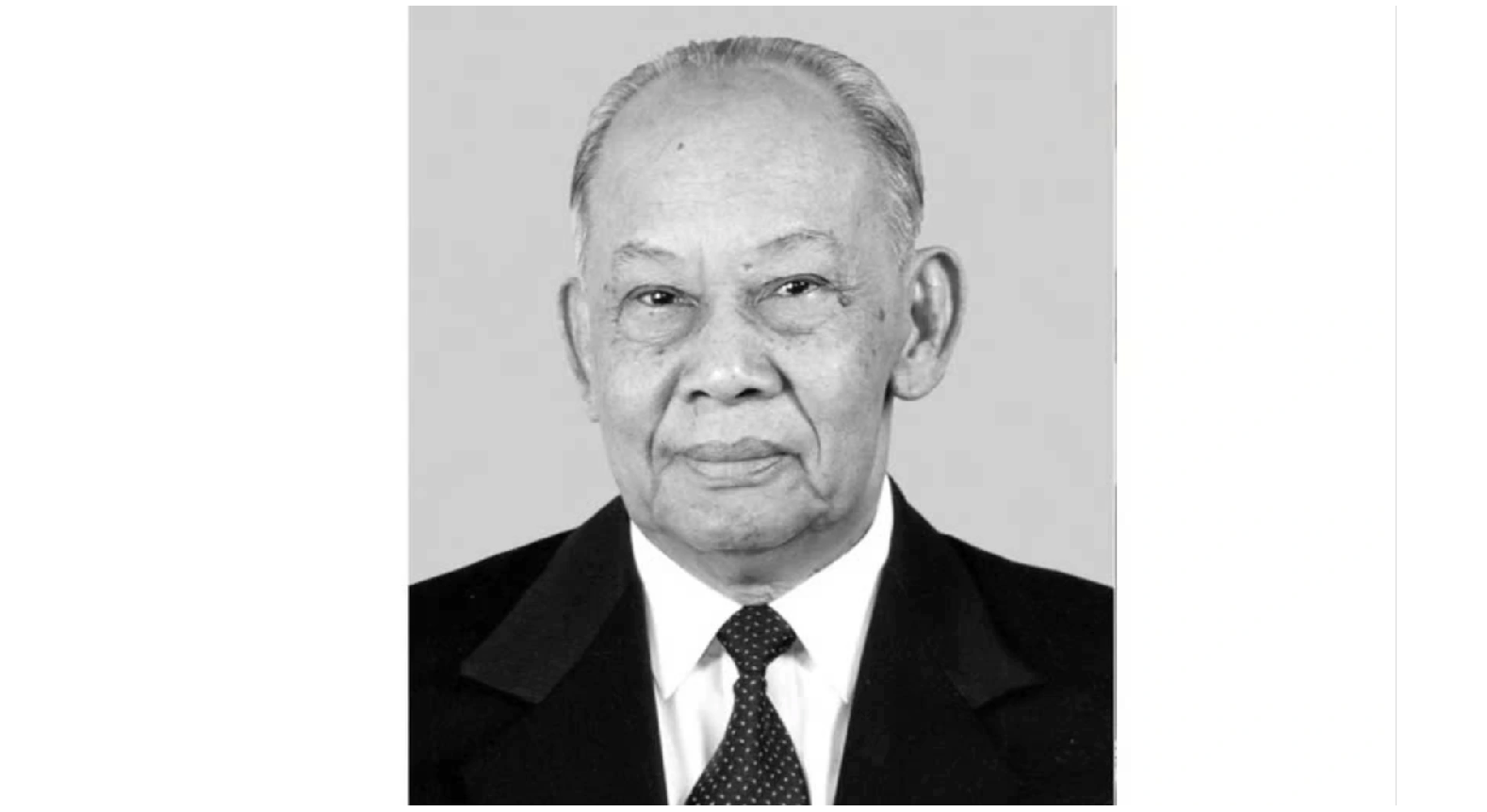
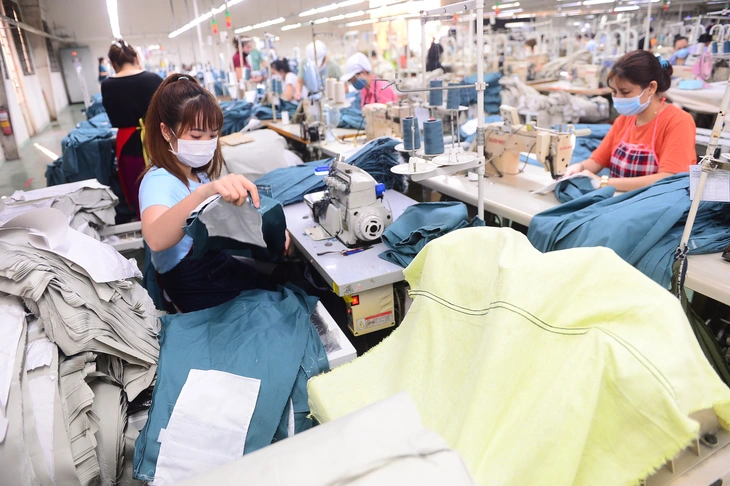





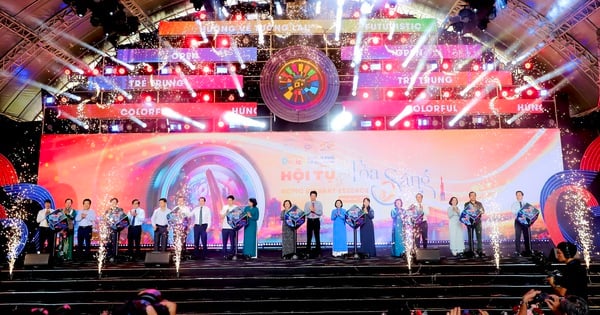

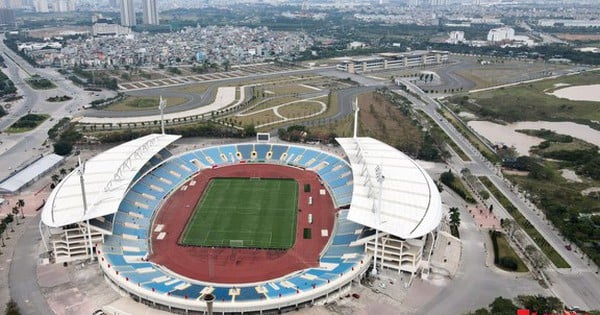
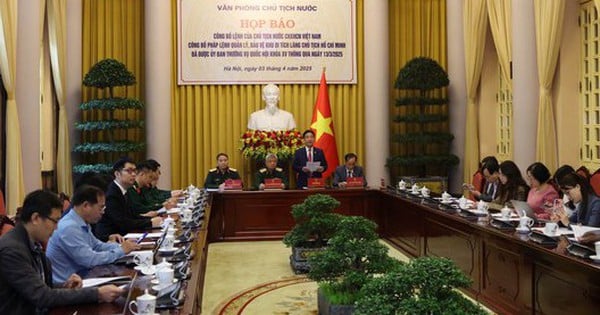

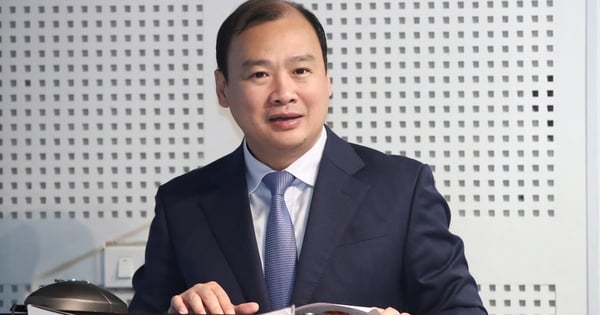

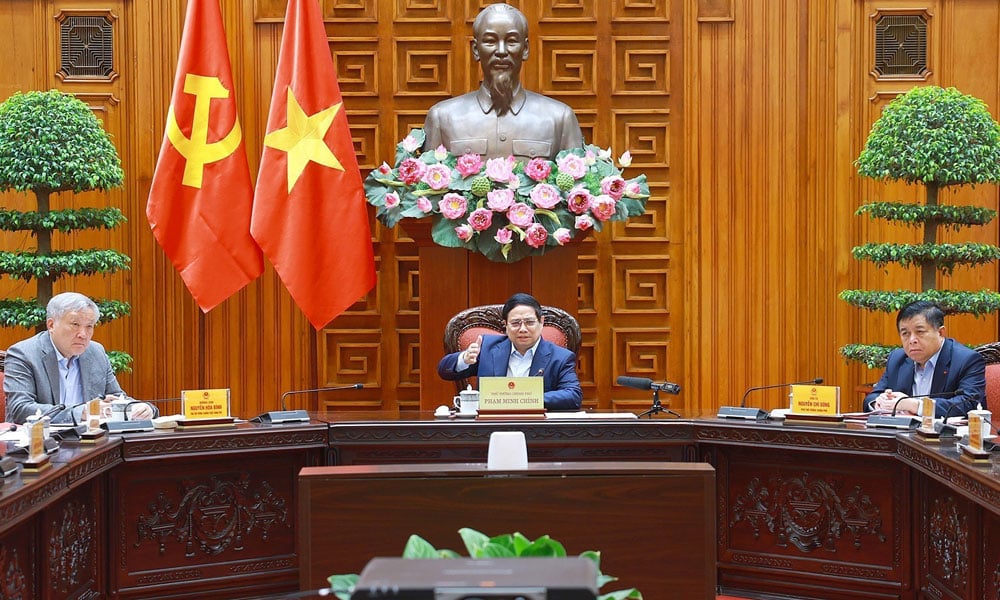

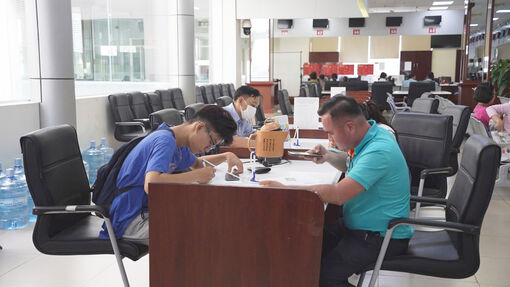
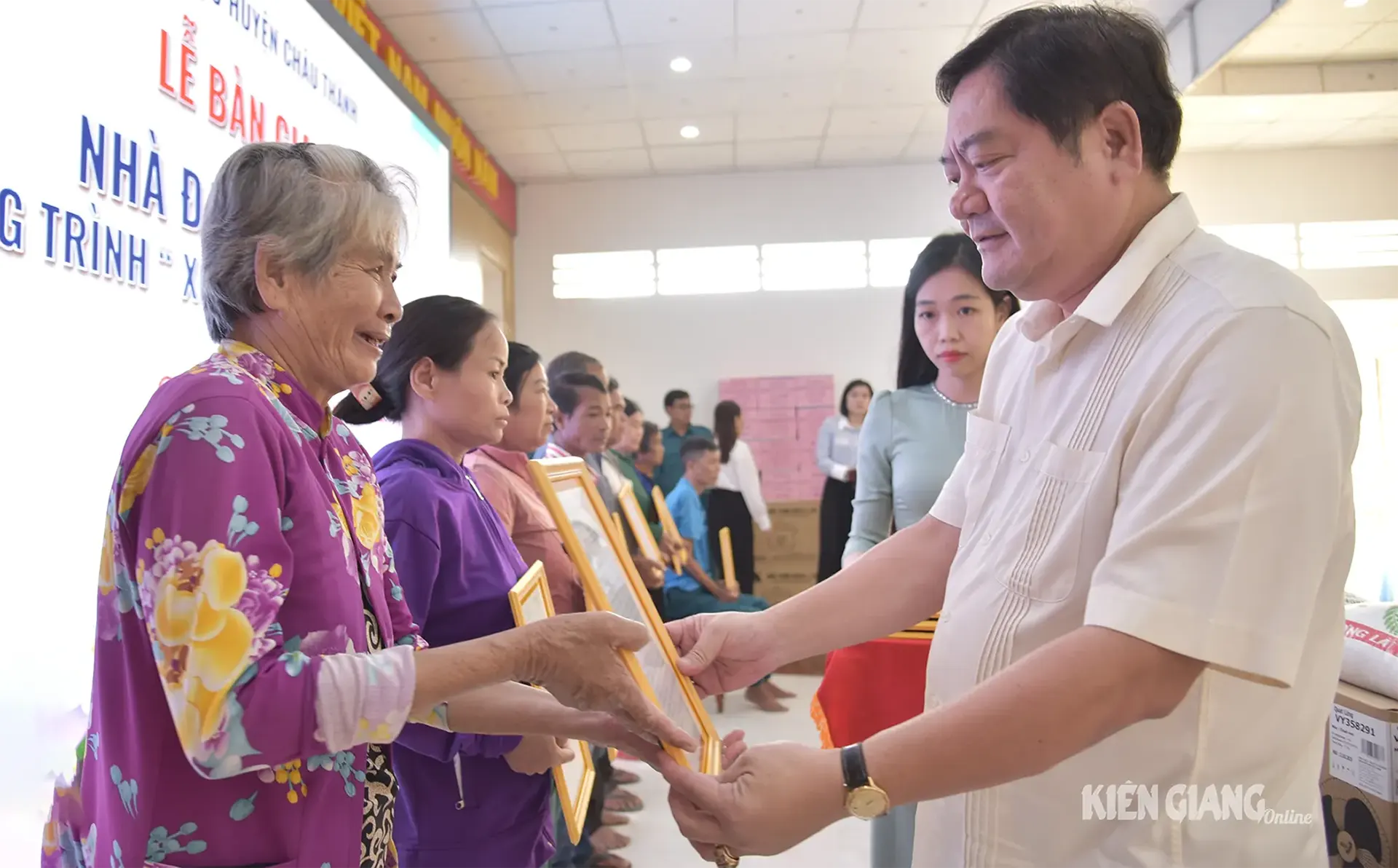
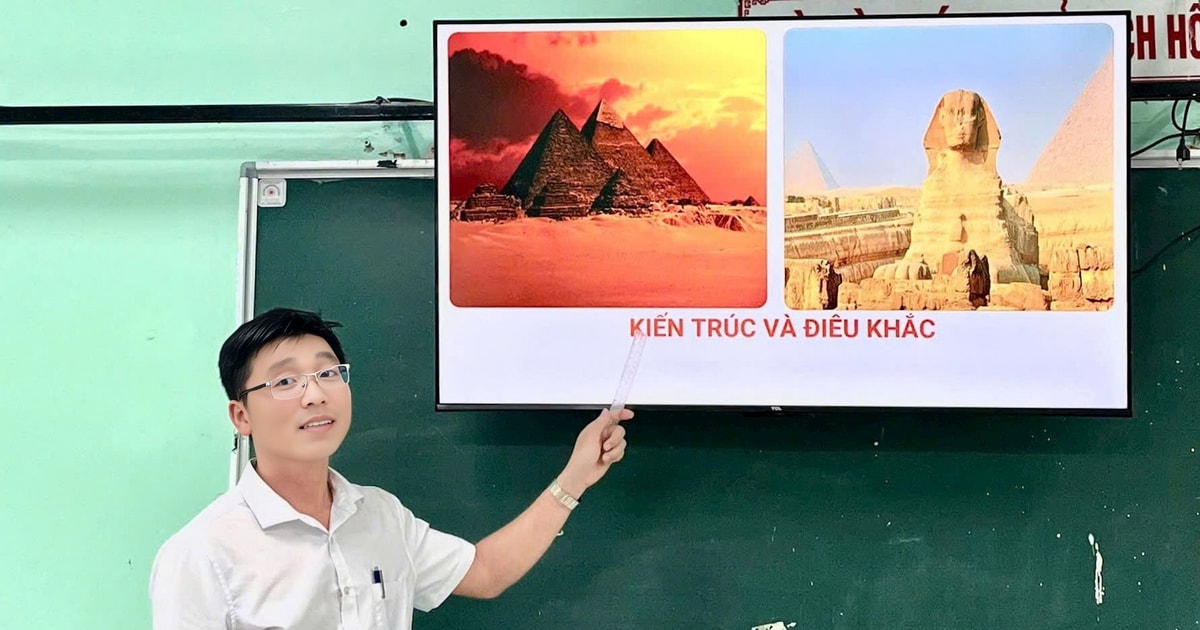

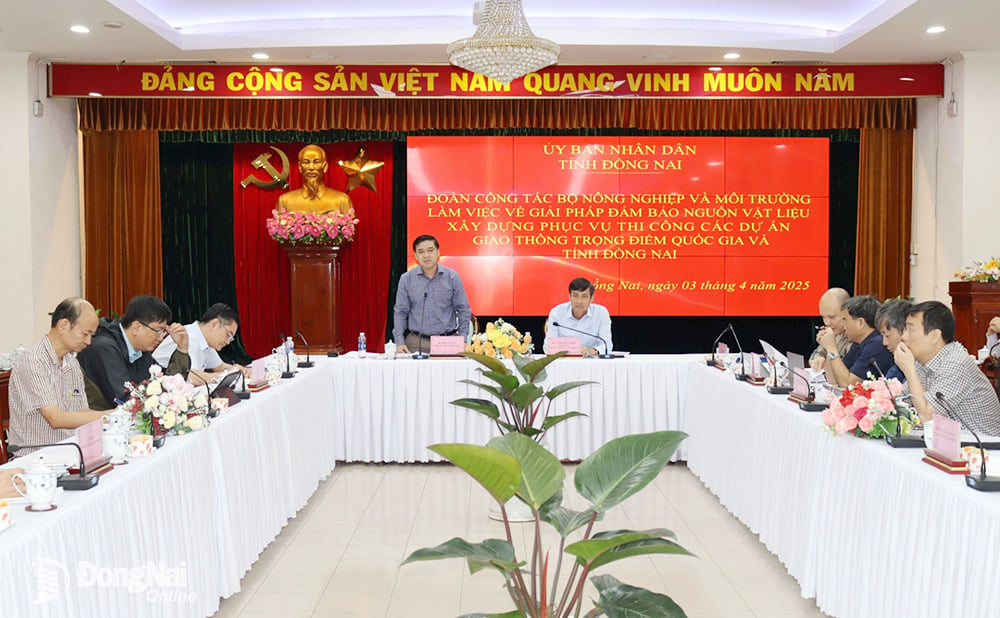













Comment (0)